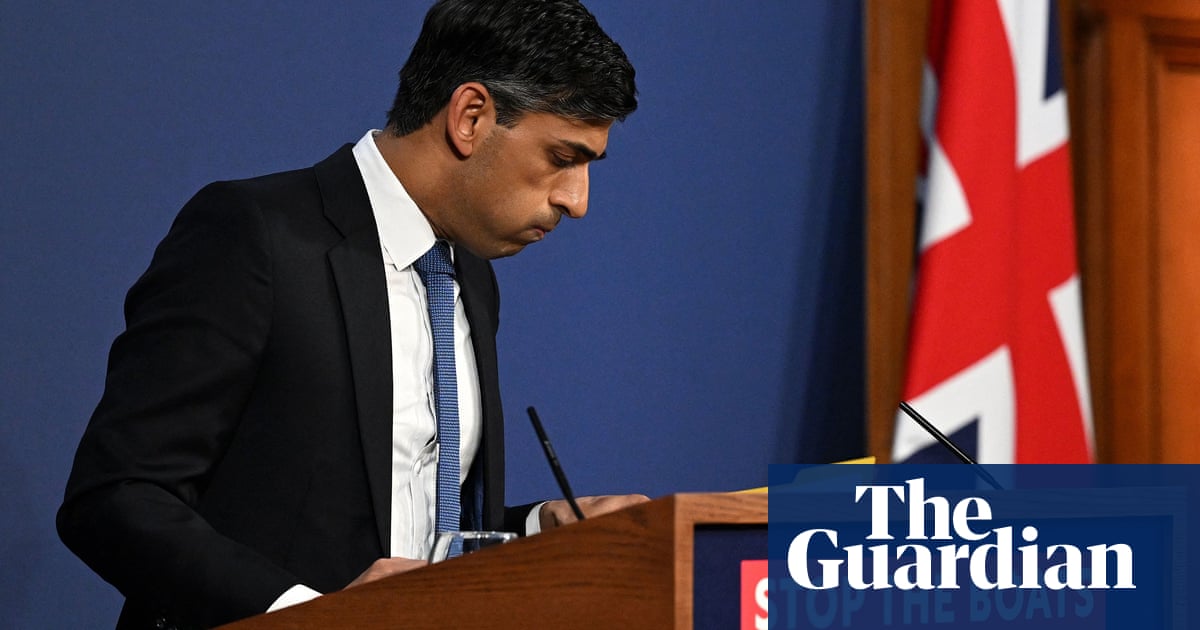
The UK’s trade agreement with the EU could be immediately terminated if the British government quits the European convention on human rights (EHCR) over the issue of stopping small boat crossings across the Channel, legal experts have said.
Under the 2020 trade and cooperation agreement (TCA), the EU has the right to take retaliatory action including the ending of the hard-fought agreements on extradition and access to the database of biometric data including fingerprints and DNA, said Steve Peers, a professor of EU and human rights law.
“If the UK left the ECHR or denounces all or part of it, it is fairly clear that the EU would suspend the police and security agreement,” he said pointing out that the TCA locks Britain into a number of provisions relating to the human rights convention as a standard on policing.
It would make cross-border law enforcement harder and mean suspects facing extradition to Britain would have a legal defence open to them, with arguments that their human rights were at risk in a UK court.
Catherine Barnard, a professor of EU law at the University of Cambridge, said: “It is clear that the EU absolutely had it in mind that the UK might try and leave the convention and respect for it runs through the TCA like writing through a stick of rock.”
Article 524 of the TCA states the agreement, which was struck by the UK’s then chief Brexit negotiator, Lord Frost, and the EU, is based on both parties “longstanding respect for democracy, the rule of law and the protection of fundamental rights” including those in the convention.
Article 692 provides for a nine-month notice of termination of the TCA by either party, but allows for an immediate “termination” effective on the day either party leaves the ECHR or a date “the denunciation” of its principles becomes effective.
Threats to denounce the convention have already caused concern at the UN and among a delegation of German MPs who sit on the Bundestag’s European affairs committee who were visiting their UK counterparts in Westminster. “We have noted the reaction of the United Nations, and they are really concerned about what’s going on,” Anton Hofreiter, the chair of the committee, told reporters in London.
“We also had some strange comments with people you talk to, for example one comment that ‘we have left the European Union so the court of human rights does not apply to us’. But they have nothing to do with each other.”
“We can understand relocation [of asylum seekers] is not easy to handle, but it’s not easy for any European country but in these times we can only recommend that every country apply international law,” he added,
The concern comes as the German delegation hailed the new spirit of trust and cooperation between the UK and the EU after the Windsor framework, or revised Northern Ireland protocol, was announced.
Detlief Seif described the deal secured by the British prime minister as a “really important achievement”.
“In Rishi Sunak we can see he has a different style in terms of negotiations … We get the impression that we can once against trust the UK,” Seif said, adding that he detected a “huge relief” among the British MPs the delegation met, which was “reflected in the EU and in Germany”.
“In business and politics facts do count but also what matters is trust and reliability of partners,” said Seif.
Hofreiter said Brexit had already had a huge impact, pushing the UK down the ranks from being Germany’s fifth most important trading partner to 11th, behind smaller countries such as the Czech Republic and Austria.
“For the last five or six years Brexit was poison to our economy,” he said, with trade in sectors ranging from automotive to chemicals and financial services hit by the UK’s departure from the EU.












